11:45 hours, Wednesday 6th November 2013
It’s approaching the end of Day Six out of Auckland. And we’re about to arrive at the Chatham Islands (NZ); an unplanned visit and the ship is abuzz with talk of what the natives might be like. That’s if we ever make it. We deviated course yesterday some 450 NM south-east of Auckland and set the starboard stuns’ls (‘studding sails’ being the extra sails set out the side of the ship) to take advantage of the light wind. But today we’ve hit lighter winds and right now we’ve almost stopped again (not as still as it was on Sunday – see my blog below). A blocking low out here in the South Pacific. Because of this it’s wet wet wet in New Zealand right now. We can just now see some of the tiny northern islands that are part of the Chatham Island group. If we get there we might find safe harbour and jump in the zodiacs and go ashore.
Life on board is very different to Tecla. Whereas Tecla was an informal family affair, where we had much more contact and involvement in sailing, meal preparations and washing, here on Europa it’s much more formalised, and the cooks stick to their job. And I’m eating well for it. We help out with adjusting sails and furling and unfurling of sails aloft. And we steer the ship from the help at the stern, day and night. And we man the lookout on the bow as well.
Whereas across the Tasman we had dolphins and whales visit along with the ubiquitous albatross, since Auckland I’ve seen just three seals (sea lions?), one of East Cape, another last night sailing south toward the Chathams and another tonight as we approached the main western bay of Chatham Island. There was also the lone tern as mentioned in my blog entry on the Europa website.

I’m getting used to the daily changes to routine with the rolling flux to our daily watch changeovers. Today I had a Dungeon tour with Chris the ship’s Engineer and am amazed by the degree to which every space in the keel compartments of the ship are used to the max. Getting into each compartment and moving inside them was a feat in itself, with headspace and turn-space at an absolute premium. A few more bruises for wear after this jaunt.
23:45 hours, Wednesday 6th November 2013
We’ve just weighed anchor at the main port on the desolate Chatham Island and from the charts I’ve seen in the wheel house it’s about 40 odd kilometres long with the maximum altitude of the few remnant volcanic peaks at about 300 metres above sea level. I’m a little sweaty as I had all my layers on in the chilly twilight air as I went aloft to help furl the royal, top gallant, upper top, lower top and course sails on the main mast. Laying over the yardarms and straining to bunch the sails up and tie them up with the gasket coils (rope) gets the upper body sweating. Back on deck and soon to weigh anchor people are cracking open beers. They’re all drinking Tui – a New Zealand Indian Pale Ale – of which I saw from today’s tour below in the bowels of the ship there is plenty of in stock. The crew insists on us leaving all our beer cans uncrushed as they prefer to professionally crush them themselves so as to ensure that all this waste is reduced to the most minimum of dimensions. All the waste has to be stored and there is limited space on board.
We’ve decided to go ashore and explore this remote island tomorrow. The ship’s zodiacs (inflatable rafts with outboard motors) have been assembled on the sloop deck and will be lowered into the water tomorrow morning ready for our landing runs. After this it will surely be the last land we’ll see before arriving in Stanley, Las Malvinas (Falkland Islands).
It was two nights ago that we crossed south of forty degrees of latitude. We’re now into the Roaring Forties but there ain’t much roaring yet. This massive high is hanging still. And it is about to join up with another massive high west of the South American continent. As such we’ll be forced to head more directly south of the Chatham Islands in order to get real westerlies. We’ve still got around 4,900 NM to sail to Stanley.
We drifted slowly all day today south to the Chathams. We weren’t quite becalmed, but the albatross were occasionally sitting around floating on the water around us – a sure sign (see below my recent blog). I’ve been learning sea faring navigation techniques from a sextant and celestial navigation expert on board, a strange Australian fellow who insists going by his nickname of Fruit Bat. The last few days at the hour of the sun’s Meridian Passage (around midday approximately at present) I’ve been taking the sun’s altitude by ‘swinging the sextant’ and winding the vernier calliper on the sextant to get to that point at which the sun rises no more and it’s level with the horizon. Then it’s another while below in the ship’s beautifully appointed library, replete with glossy wood panelling, that I struggle with the ‘bible’ – the esteemed and universally used navigational Almanac – following a process of looking up tables, solving formulae and finally through basic arithmetic arriving at my latitude south of the equator. First time I was three nautical miles out. Next day I was two and half miles out. I’m in an unannounced competition with an old French navy gentleman, Jean-Pierre, who’s silently going about it each day. A few days ago he was six nautical miles out. I beat him – a fluke. But yesterday he was just 180 metres out. Wow! My error was a respectable 1.6 nautical miles further north of the actual latitude. According to Fruit Bat this is very acceptable. Next step is to take further celestial object readings with the sextant to be able to arrive at deducing my longitude.
Sleeping tonight will be strange without the slosh and trickle sounds of the water past the hull beside my head below in the bunk, as we’re anchored in gentle seas off Waitangi, the main settlement of a few hundred people here on the main island of the largely uninhabited Chatham Islands. Right now, we’ve pairs of people doing anchor watch. Most of the rest have gone to bed. A few mingle in the cool frigid air on the mid-ship deck outside where I’m typing this inside the deckhouse.
Tomorrow, Roman (a Swiss national and deep sea construction diver) and I aren’t taking the tours that the island locals have radioed through to us that are on offer; we’ll explore the land ourselves. We’ll take our wet suits and masks and see if we can find the penguins and seals; though the thirteen degree Celsius waters might make this foray a little curtailed. The settlement shops are all shut tomorrow as there have been two deaths and all the locals will be attending the funerals we’ve been told.
Through binoculars this afternoon on approach to the islands I could see very little major vegetation; the odd clump of woodland and shrubland clinged to a few ridgelines. Rills and gullies rain from steep tabletop areas leaving breakaways falling to coastlines where breakers crashed. In the distance conical peaks were visible and there was one central massif that resembled an ancient volcanic caldera plug. I’ll learn more tomorrow.

Meanwhile life on board the grand old Bark Europa continues to unfold. By day two or three I’d met everyone on board and had memorised all names of the 38 voyager crew and the 17 crew members. My head already has several sore lumps on it from collisions with steel bulkhead door frames and low ceilings. But I’m getting better at avoiding this. And I’m also improving at getting in and out of my snug top bunk, as well as in negotiating the heads (toilets) and showers in the cramped ‘wet cell’ area. Signs say that all good sailors sit down to peer. I’m trying to abide.
The Europa over-complies with all international agreements regarding ejecting waste at sea. It only throws organic waste overboard at certain rates and only at night, so that the albatross and other deep sea birds don’t get to feed on it.
Characters to write about onboard abound. There’s Speedy [ol’ Sea Dog] Piet, the ol’ Dutch sailor with world sea stories from the sixties and beyond, including his story of learning the harmonica under the covers at night as a young boy because his mother banned him from playing it and therefore inadvertently learning to play the instrument upside down back to front as it was dark when he played it.
At times I am exasperated by the monotony of life and the pace of change onboard. We move through the motions. We strike up conversations with the persons nearest us if the mood so inspires. Sometimes I avoid these and try to find quiet spots on deck, but invariably a quiet spot will become a hive of activity when a sail trimming is required or a jibe is ordered and all hands are suddenly in your space again. Sometimes we sit in silence with our watch buddy. At other times we immerse ourselves in deep conversation at the risk of ignoring our watch duties. And then the Captain or First Mate climbs begrudgingly out of the wheelhouse to shout orders back to us at the helm above the sound of the chilly night wind that we need to steer fifteen points starboard in order to bring her back on track; it’s a kind of admonishment as we at the helm, having been given a course to steer, need to maintain it by reading the wind in the sails. And so we turn again to the big old compass – made in Copenhagen in 1974 – and the faint red glow that illuminates her dial, and try to feel the ship and her needs.
Meal times and ‘coffee breaks’ become well-anticipated moments in time. Going to bed is an ever-moving thing. And the evening sun set seems to be a universal gathering point in time as it’s usually just when we’re all coming together for dinner regardless of the various watch duties that we have at the time. But with only just six days since Auckland under our keel and in our wake I’m anticipating a lot more psychological struggles on the horizon.

Elephant seal, Waitangi Bay, Chatham Island

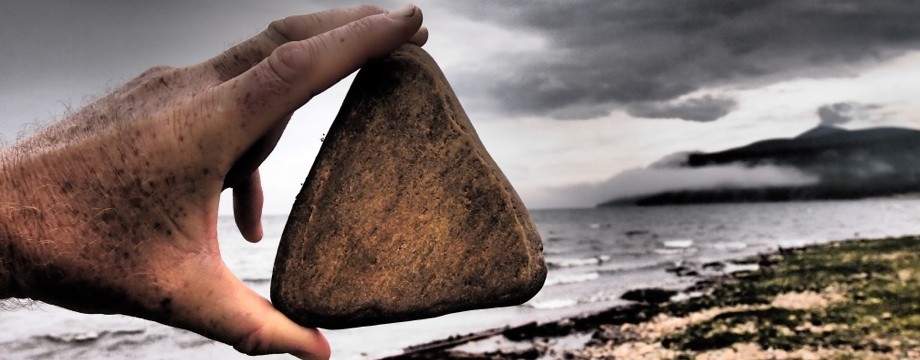
![Europa approaches Cape Horn on a rare calm sea [Image from an earlier Cape Horn voyage]](https://planetlars.files.wordpress.com/2014/01/capehorn.jpg?w=930&h=307)
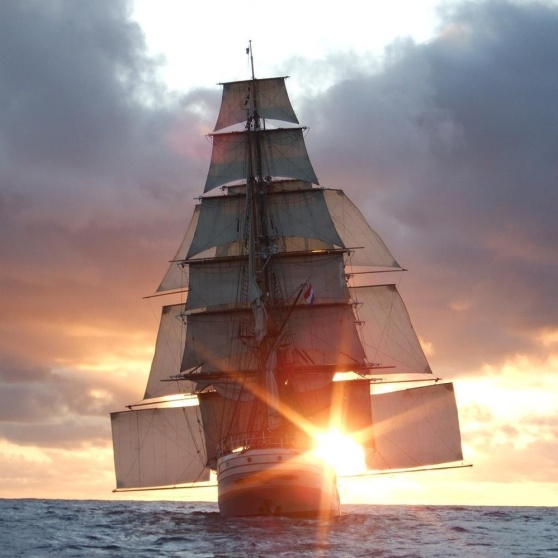
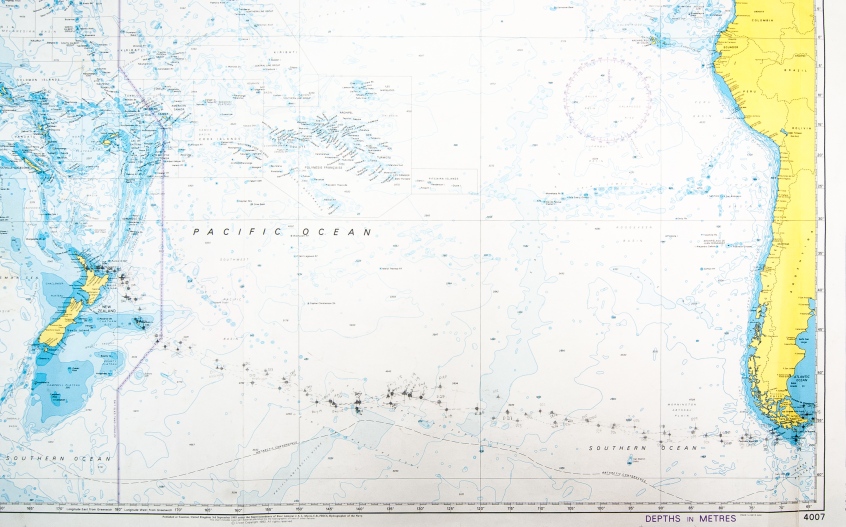
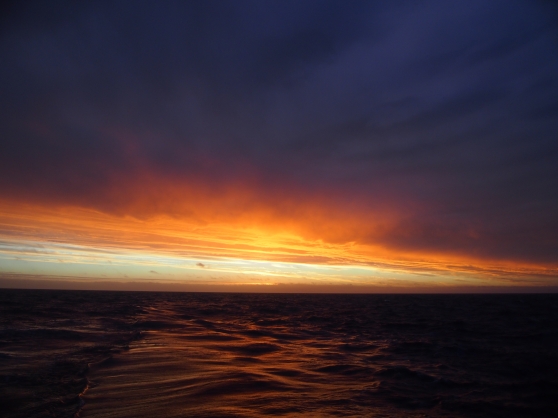
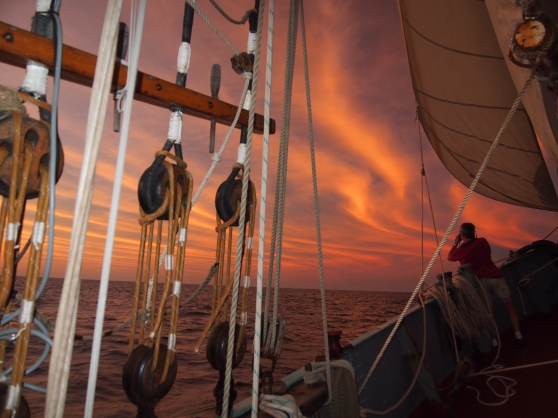

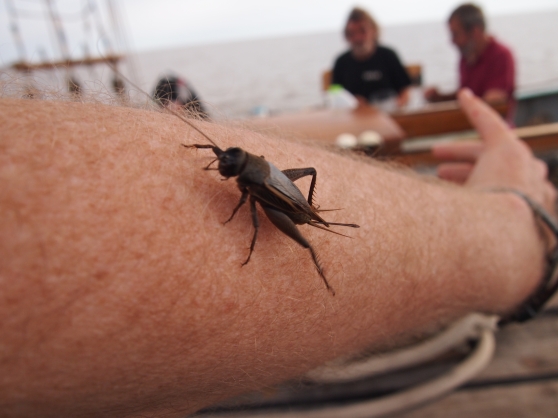
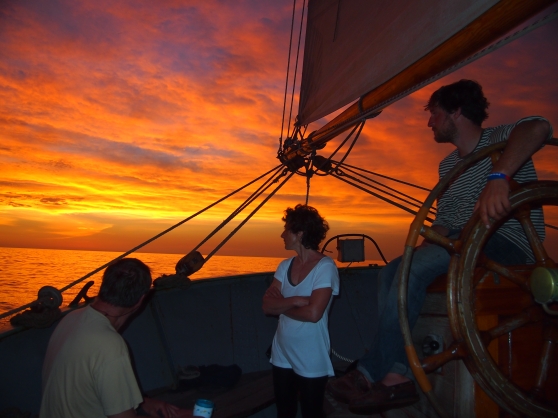
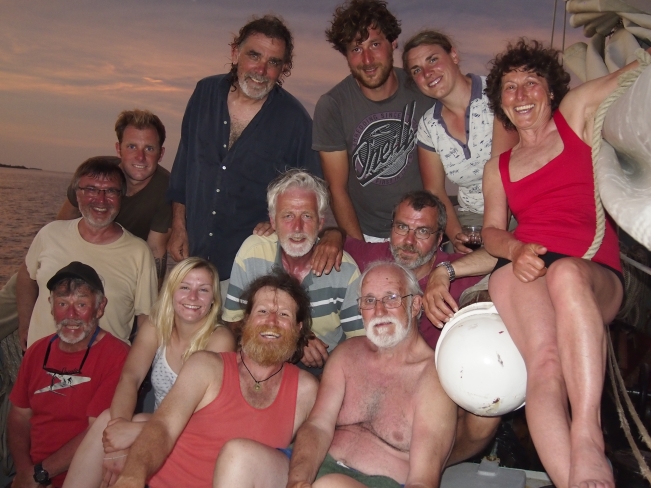







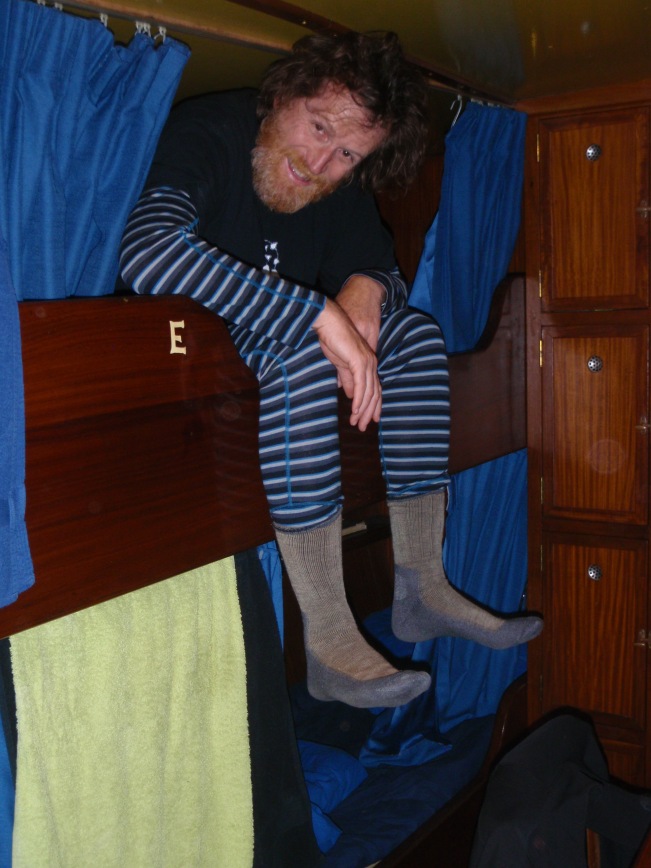



![The Mustang Survival Suit (aka The Shack [Shackelton] Suit) made the freezing 50s bareable](https://planetlars.files.wordpress.com/2013/12/shack-suit_cc-on-helm_lowres8.jpg?w=648&h=864)




